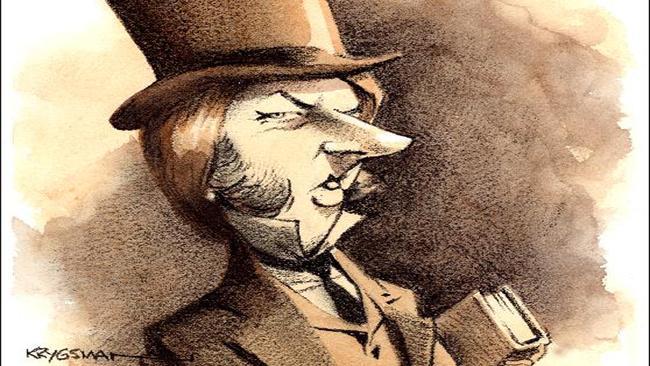
SO the problem with modern education is not, after all, spoiled kids, feckless parents, disengaged teachers or faddish teaching styles. It is not that principals lack autonomy or that the school rules have been replaced with shared expectations of appropriate behaviour. It is not that the response to bad behaviour is no longer punishment but a staged response towards an agreed transition pathway. The problem with schools is a shortage of money, apparently, just as the teachers' unions said all along.
Kim Beazley Sr thought that was bunkum in 1958 when he took on the NSW Teachers Federation. "The publications that we receive every month from the teachers are nothing but propaganda about money," he told parliament. "There is never anything in them that would improve a teacher's technique, never anything that shows a thinking into the nature of the child."
To the teachers union, Beazley said, better education would be achieved with "better classrooms, better furniture, more money spent on education, and new projectors". In the post-war boom years, however, it was clear to Beazley that whatever was preventing children learning stuff, it certainly was not grinding poverty.
"After all, this is a community that spends £450,000,000 a year on gambling, £240,000,000 a year on liquor, and £125,000,000 a year on tobacco," he said. It was "selfishness and a falseness of values" that prevented parents from giving "a proper assessment to education's place in the lives of their children".
Such thoughts would be heresy were they to fall from the lips of a Labor politician today. The entire edifice of post-Whitlam Labor philosophy rests on the proposition that educational attainment is the route to social and economic advancement and that government funds are the key to achieving it.
The NSW Teachers Federation can save its breath; it is the government that argues the case for better buildings, furniture and projectors or, these days, laptop computers. It is the Prime Minister who reduces the debate to a question of funding and adopts the utilitarian language of bureaucrats that appears remote from the true challenges of better learning. The standard of education no longer depends on the resourcefulness of the teacher or drawing out the inner resources of the child. The only resource that counts is the expenditure of taxpayers' funds.
"It is in the budget," Julia Gillard told journalists last week. "Get the budget table out and what you see is year-by-year increases in school funding ... No one should be confused. The budget figures are there for all to see."
One journalist had the temerity to ask: "What's your position on whether the funding actually lifts school standards, school academic standards?"
PM: It lifts school standards, and I can say that to you with absolute confidence.
Journalist: Based on?
PM: Well, based on the work we have done in schools. The approach we have taken, and we have worked on these reforms all of the time we have been in office. Transparency, so you knew what was going on; national partnership schools ... we can show you in those schools that kids are getting a better education.
Such language would have warmed the heart of Thomas Gradgrind, the schoolmaster in Charles Dickens's Hard Times, a man "ready to weigh and measure any parcel of human nature, and tell you exactly what it comes to". In his monotonous vault of a schoolroom, Gradgrind would line up the children like "empty vessels arranged in order, ready to have imperial gallons of facts poured into them until they were full to the brim". Except that in the language of the National Plan for School Improvement, it is not the pouring of facts that matters, but money. Dickens' utilitarian educational dystopia bears more than a passing resemblance to the vision of educational reform projected by the Prime Minister. The myth persists that better teachers can be created by better training. Dickens introduces us to Mr M'Choakumchild: "He and some one hundred and forty other schoolmasters had been lately turned at the same time, in the same factory, on the same principles, like so many pianoforte legs." Yet, as Dickens observes: "If he had only learnt a little less, how infinitely better he might have taught much more!"
It was Gough Whitlam who first took the debate along the sterile, semantic path of human capital and the nurturing thereof, of describing children as the nation's "most important human resource" rather than as individuals who might experience the joy of learning for its own sake. Education was a utility just like electricity or water. Schools and universities would produce "a reservoir of trained men" to administer the country.
For modern Labor, the lexicon has been distilled still further. "It's not a cost, it's an investment," School Education Minister Peter Garrett told Australian Agenda on Sunday. There was no mention of teaching standards, but plenty about "structural deficiencies". The difference between the opposition's plan for the future and the government's plan for the future comes down to a difference of dollars.
And teaching standards? Well they are "just the nonsense debate", says Gillard. "The 'look over here' distraction about the standards debate; let's just put that to one side for the white noise and distraction that it is."
Nick Cater is the author of The Lucky Culture and the Rise of an Australian Ruling Class.


